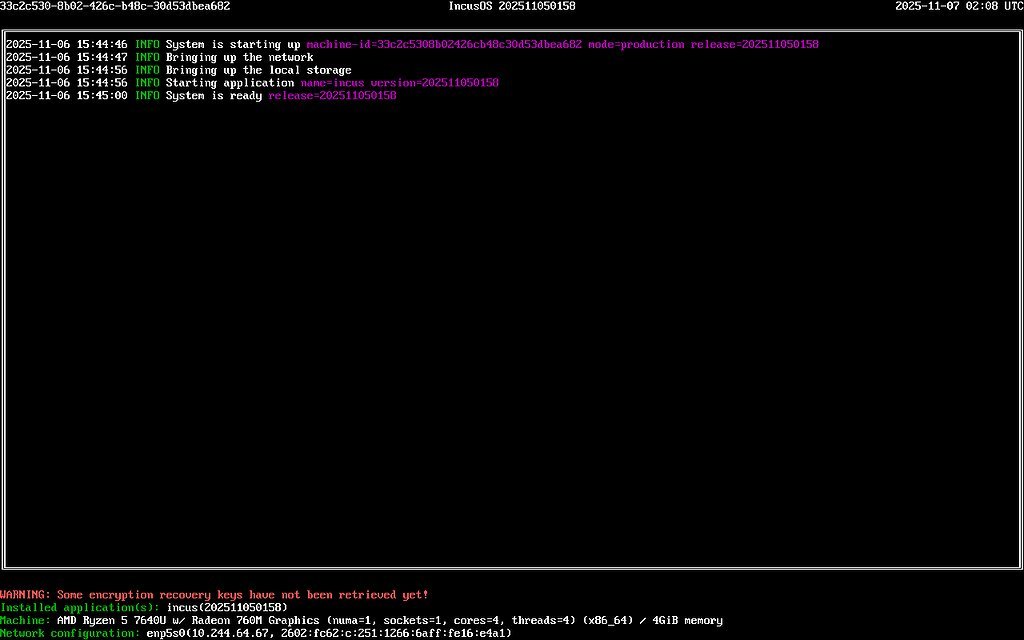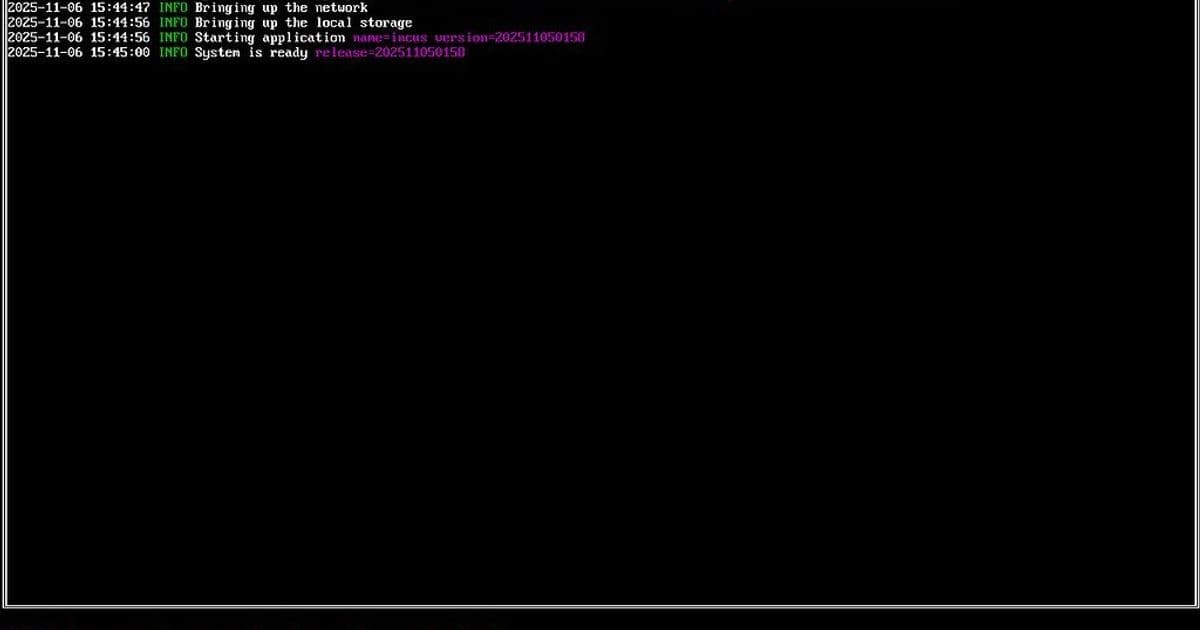After over a year of development, the Incus team has unveiled IncusOS, a locked-down, immutable Linux distribution tailored for running Incus containers with atomic updates and robust security features. Built on a minimal Debian 13 base, it leverages UEFI Secure Boot, TPM 2.0, and systemd tools for a seamless, API-driven management experience. This release promises to simplify deployments for developers and sysadmins seeking hardened environments on modern hardware.
IncusOS Hits General Availability: A Secure, Immutable Linux OS for Next-Gen Container Management
In the ever-evolving landscape of container orchestration, where security and reliability are non-negotiable, the Incus project has just dropped a game-changer. After more than a year of intensive development, the team behind Incus—a community-driven fork of LXD—has announced the general availability of IncusOS. This isn't just another Linux distro; it's a purpose-built, immutable operating system designed specifically to host and manage Incus containers with enterprise-grade security and atomic updates baked in from the ground up.

At its core, IncusOS addresses a critical pain point in modern infrastructure: the need for a stable, tamper-resistant base layer that doesn't compromise on performance or up-to-date components. Imagine deploying containers without the headaches of manual patching, shell access vulnerabilities, or inconsistent configurations. IncusOS makes that a reality by enforcing a locked-down environment where all operations— from initial setup to ongoing management—happen through the Incus API, supporting TLS client certificates or OIDC for authentication. No local or remote shells means fewer attack vectors, a boon for security-conscious DevOps teams handling sensitive workloads.
Under the Hood: A Minimalist Powerhouse
IncusOS is constructed on a stripped-down Debian 13 foundation, incorporating the latest stable builds of the Linux kernel, ZFS, and Incus from Zabbly. This ensures you're always running cutting-edge, vetted software without the bloat of a general-purpose OS. The update mechanism is particularly elegant: an A/B partitioning scheme delivers atomic updates, allowing seamless rollbacks if something goes wrong. Security is further fortified with UEFI Secure Boot and TPM 2.0 support, making it ideal for environments demanding compliance, like those in finance or healthcare.
The build process leans heavily on systemd's ecosystem—tools like mkosi for image creation, sysext for app installation, and sysupdate for maintenance. Network setup, partitioning, and more are handled declaratively, reducing human error and operational overhead. For developers, this translates to faster iteration cycles: spin up a test instance in a VM, tweak configurations via the seed mechanism on first boot, and scale to bare metal without rewriting scripts.
As one might expect from a project rooted in Linux Containers, IncusOS shines in its focus on container-native workflows. It's optimized for Incus, which itself offers system containers and VMs with a lightweight footprint compared to heavier orchestrators like Kubernetes. This makes it especially appealing for edge computing or small-to-medium deployments where resource efficiency matters.
Deployment and Ecosystem Integration
Getting started with IncusOS is straightforward, though it demands a hands-off approach—no interactive installers here. Users download customized images via the online image customizer, embedding the necessary public certificate for trust on boot. It's designed primarily for bare-metal servers from the last five years, but it plays nice with older hardware meeting minimum specs or even VMs for testing. Any machine that can run Windows 11 should handle IncusOS without breaking a sweat, thanks to its Secure Boot and TPM requirements.
The Incus team has already integrated IncusOS into their online demo sessions for the past few months, proving its stability in real-world scenarios. Weekly stable builds will keep pace with kernel bugfixes, Incus updates, and Debian patches. Looking ahead, enhancements are on the horizon: expanded configuration options, Linstor support for storage (complementing existing Ceph integration), and additional services like Netbird alongside Tailscale for networking.
Excitingly, the roadmap includes web-based deployment and management through an updated Incus UI, ditching client certificates for a more accessible experience. This could pave the way for fully automated stacks encompassing authentication, monitoring, distributed storage, and networking—think one-click Incus clusters for teams without deep CLI expertise.
Why This Matters for Developers and Engineers
In an era where supply chain attacks and runtime exploits dominate headlines, IncusOS's immutable design and API-only access represent a proactive stance on security. For programmers building containerized apps, it means a reliable host OS that doesn't interfere with your stack, allowing focus on code rather than sysadmin drudgery. Engineers managing infrastructure will appreciate the reduced maintenance window and rollback safety nets, potentially slashing downtime in production environments.
This release underscores the Incus project's maturity as a viable alternative to proprietary or more complex solutions. By prioritizing open-source principles and modern hardware capabilities, IncusOS lowers the barrier for adopting secure container tech, especially in homelabs, startups, or enterprises wary of vendor lock-in.
The community is buzzing with early adopters testing it on spare hardware or VMs. With new forum categories for discussion and GitHub for bugs, feedback will shape its evolution. Whether you're a container enthusiast or a sysadmin eyeing simplification, IncusOS invites you to boot it up and see how it streamlines your workflow—securely, atomically, and without the shell.
Source: Linux Containers Forum Announcement, IncusOS Documentation, and GitHub repository.

Comments
Please log in or register to join the discussion